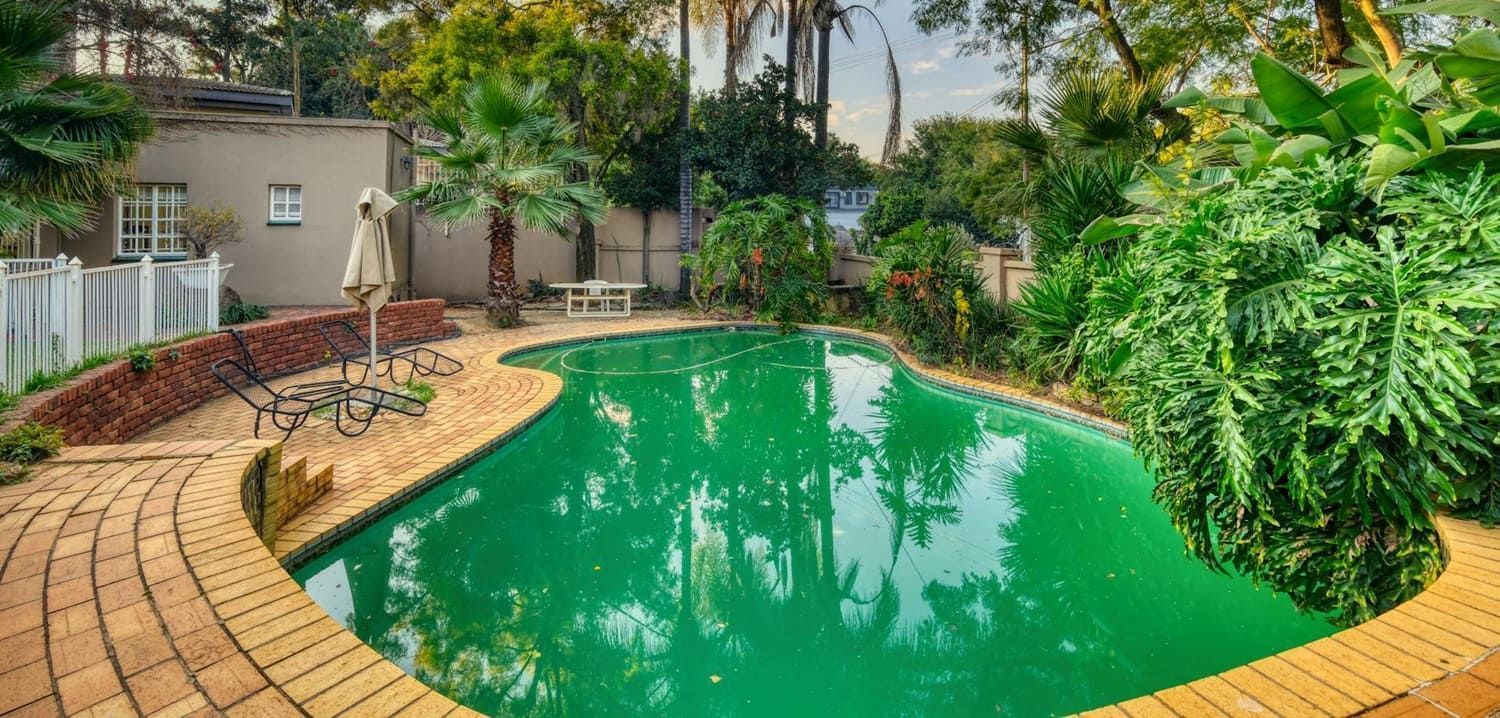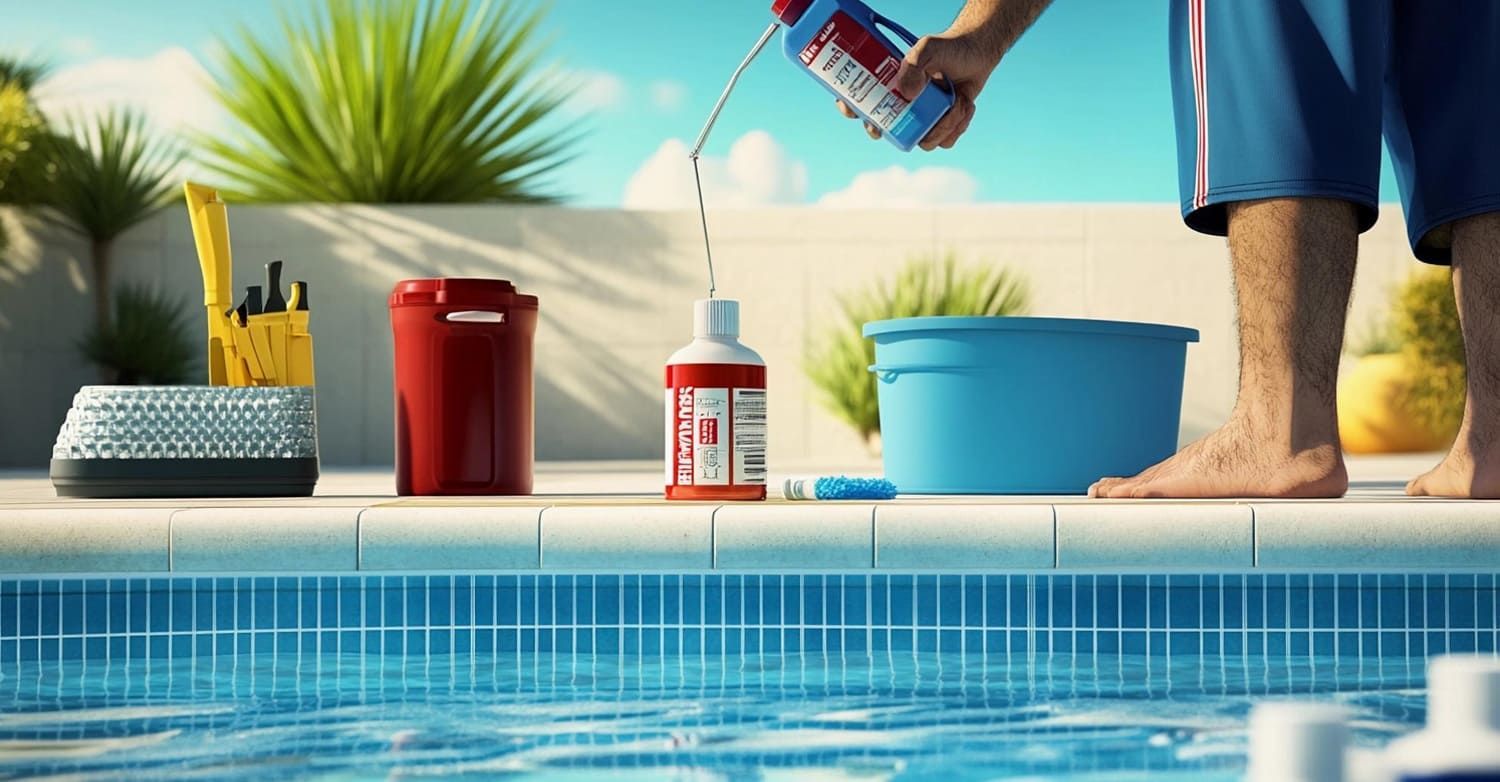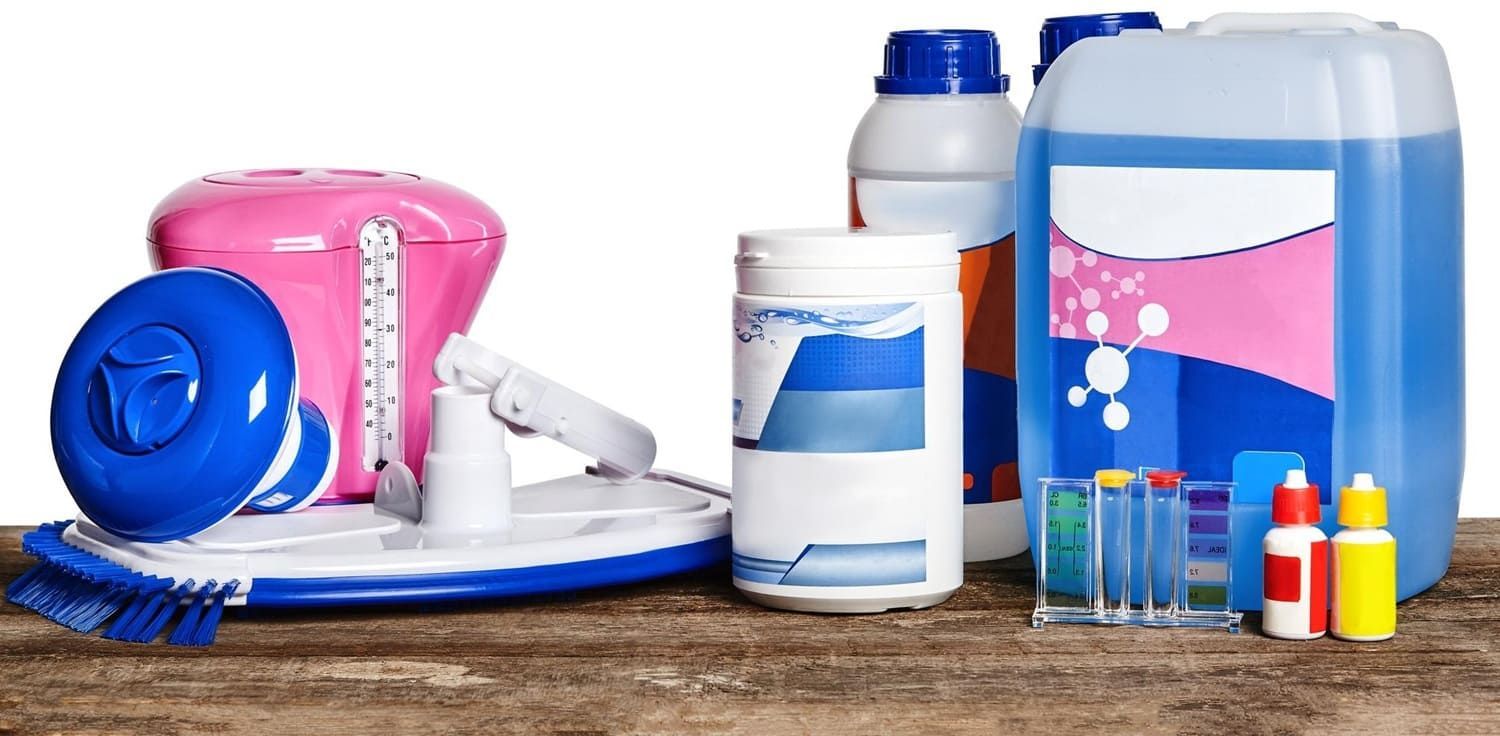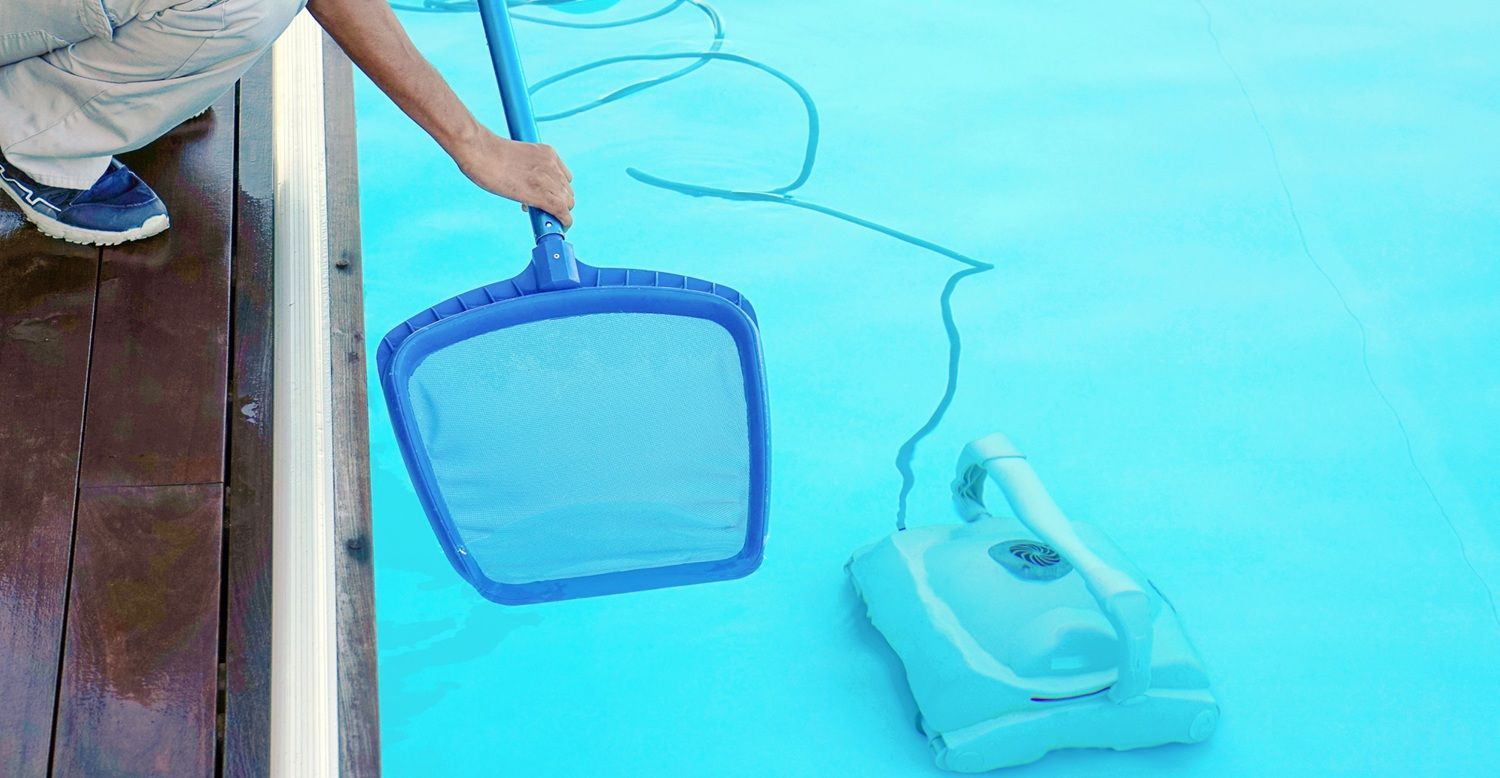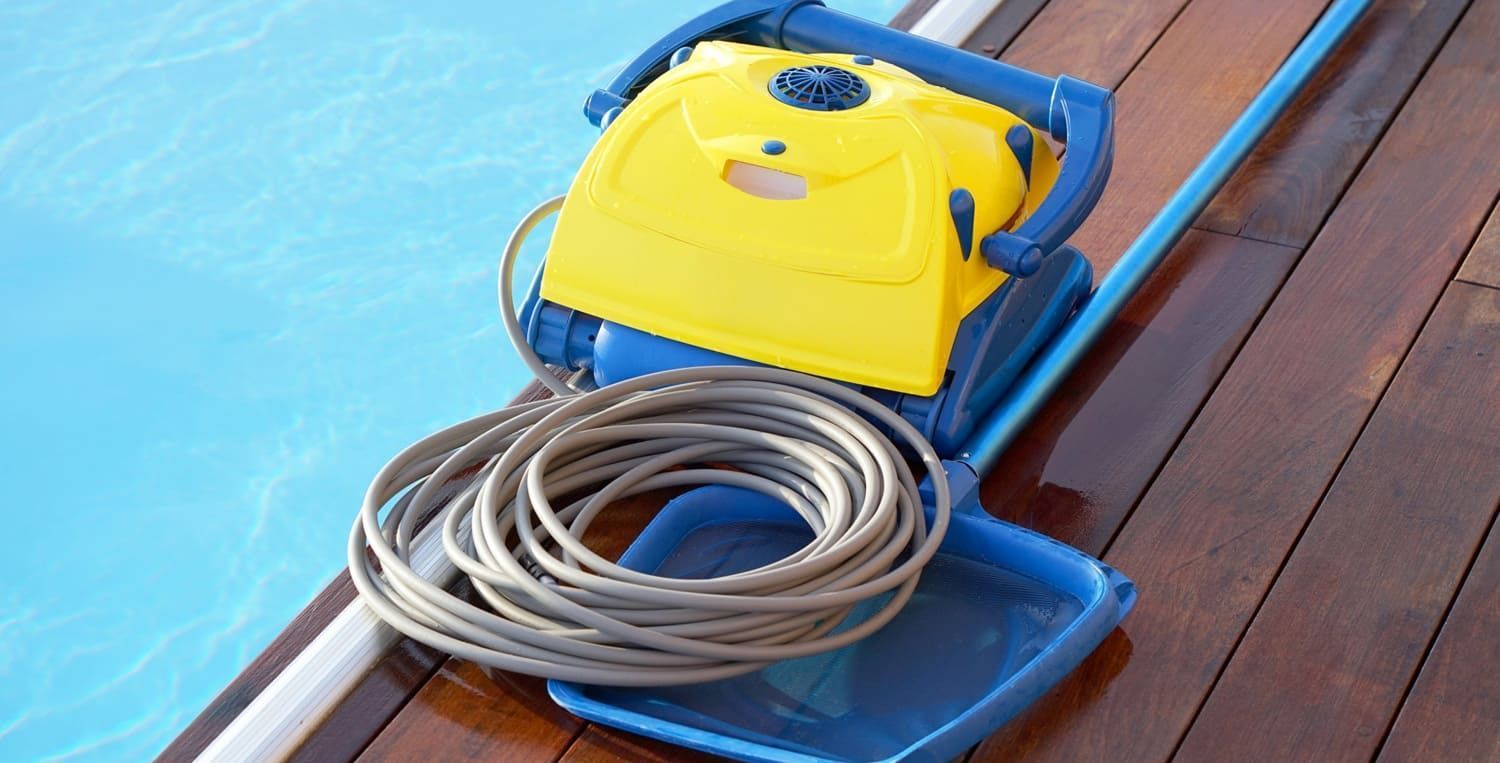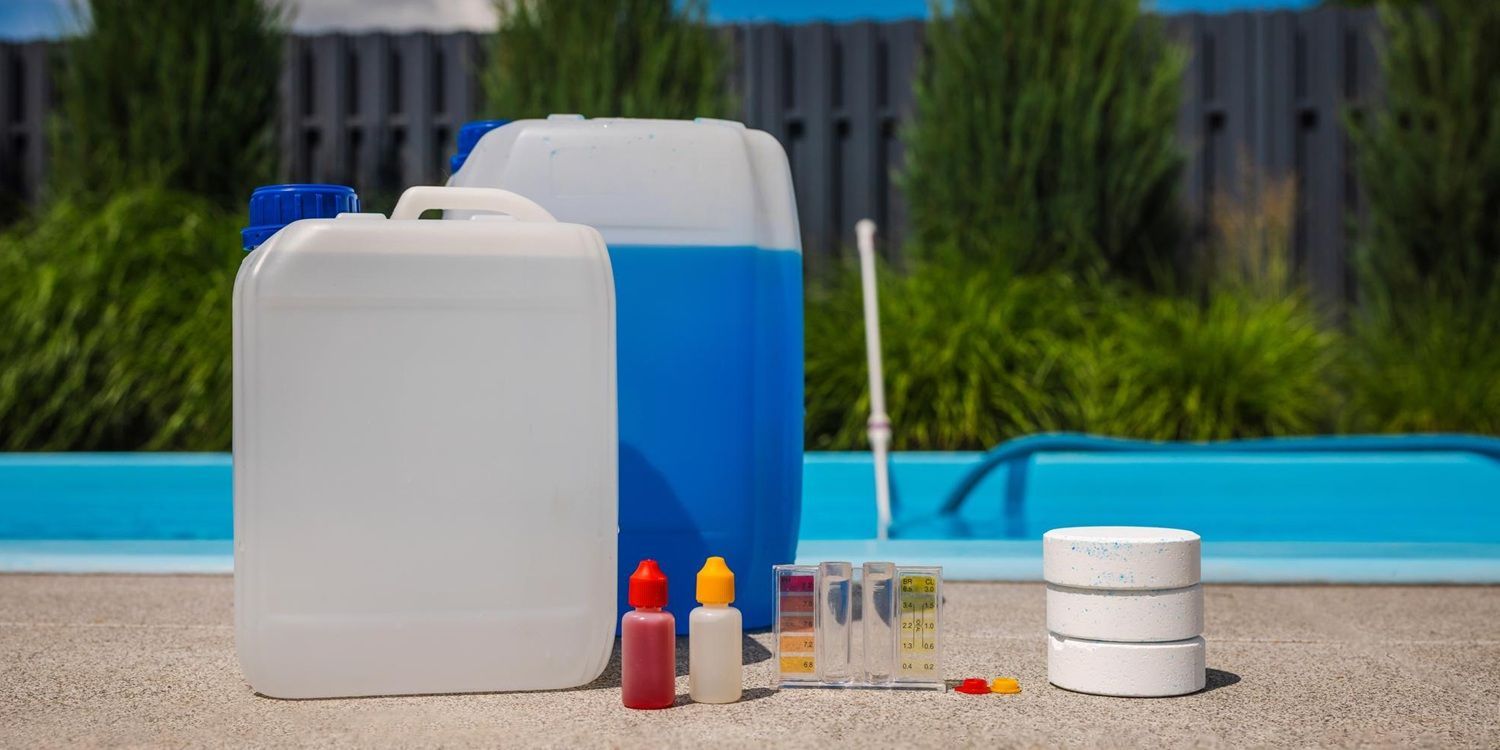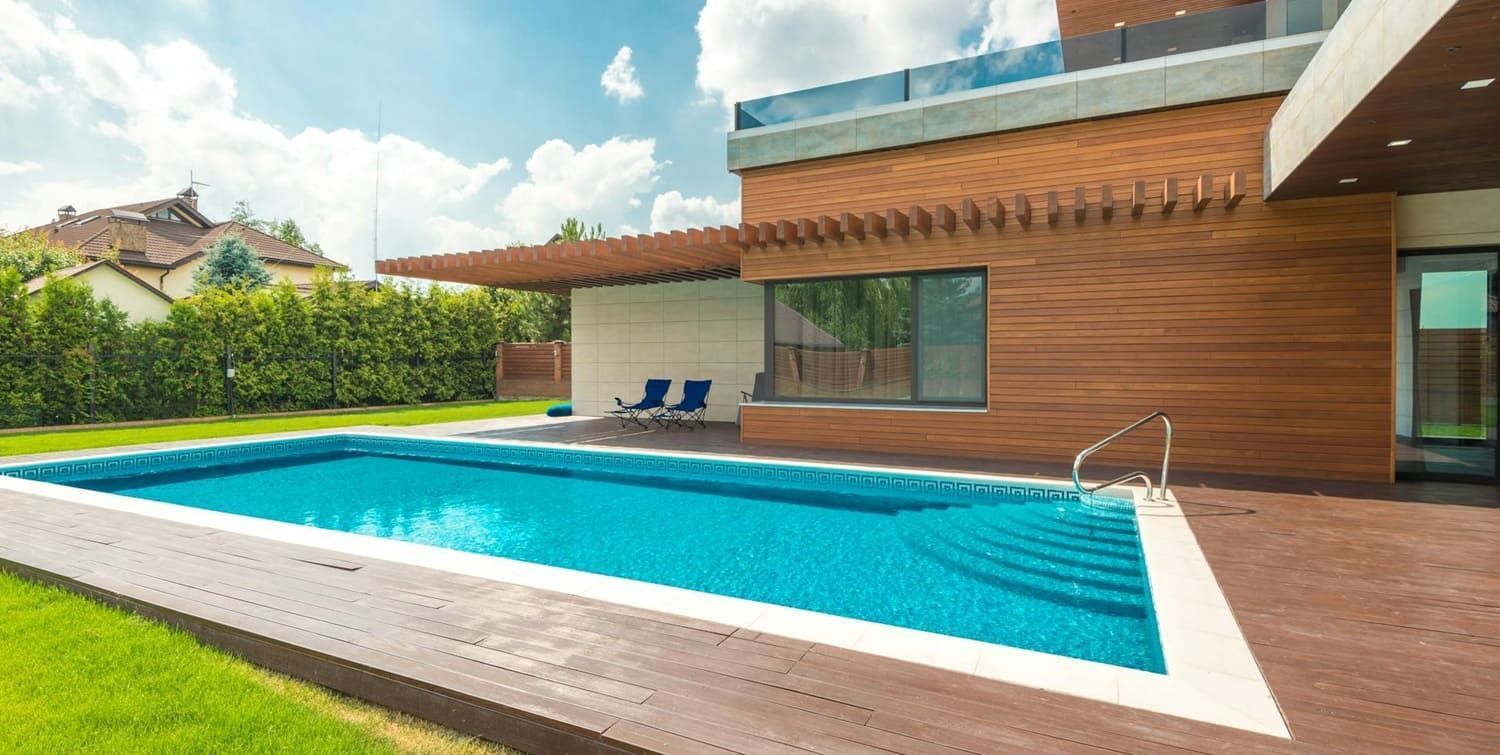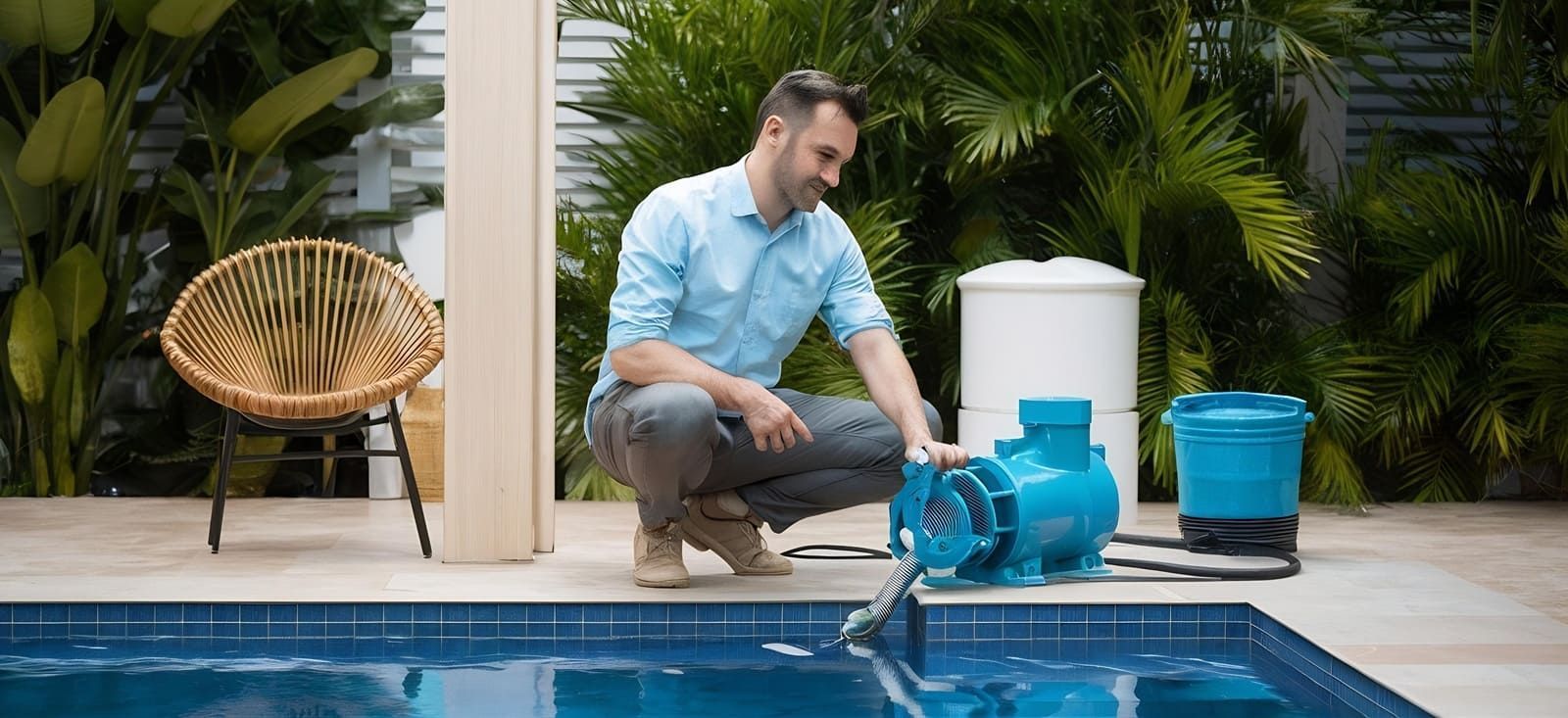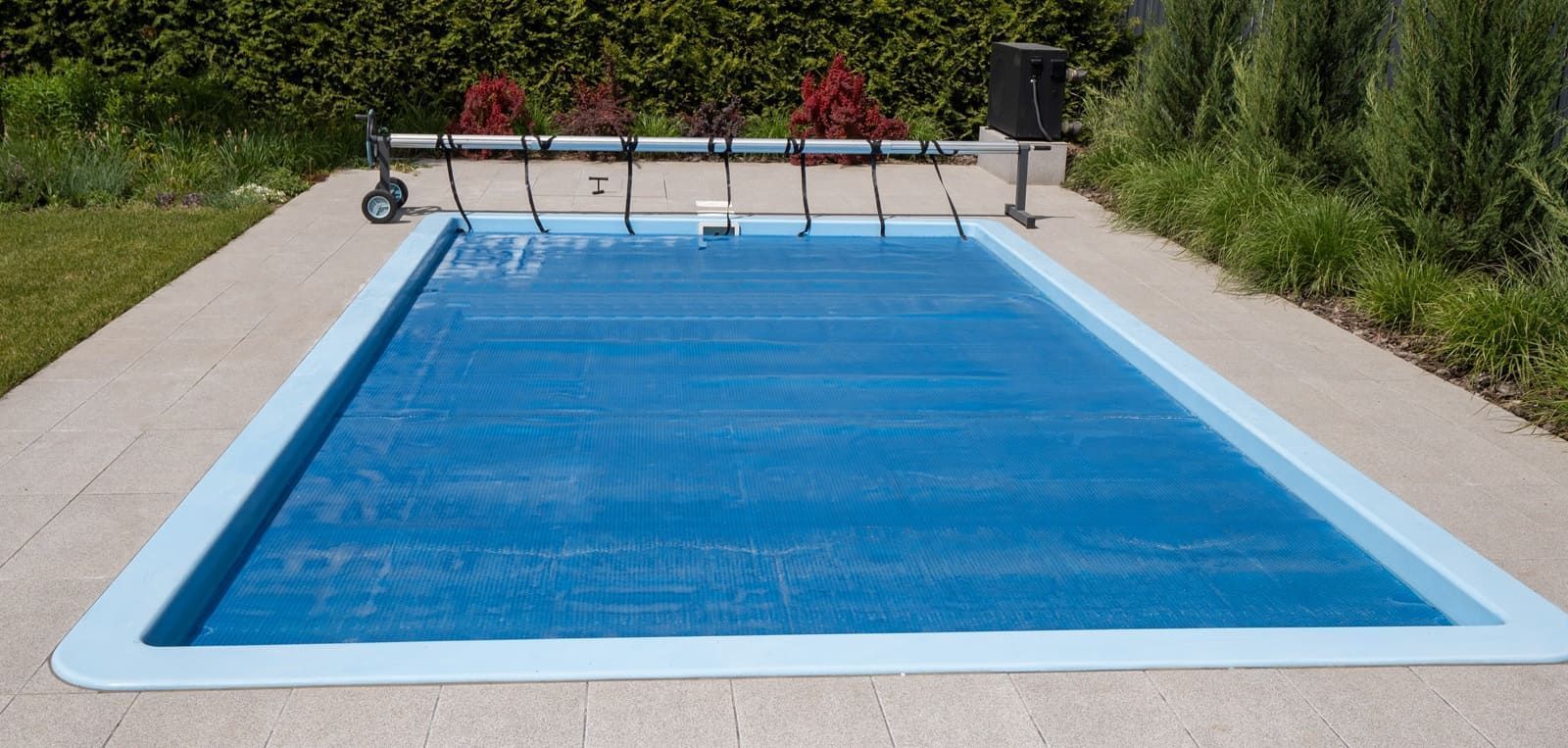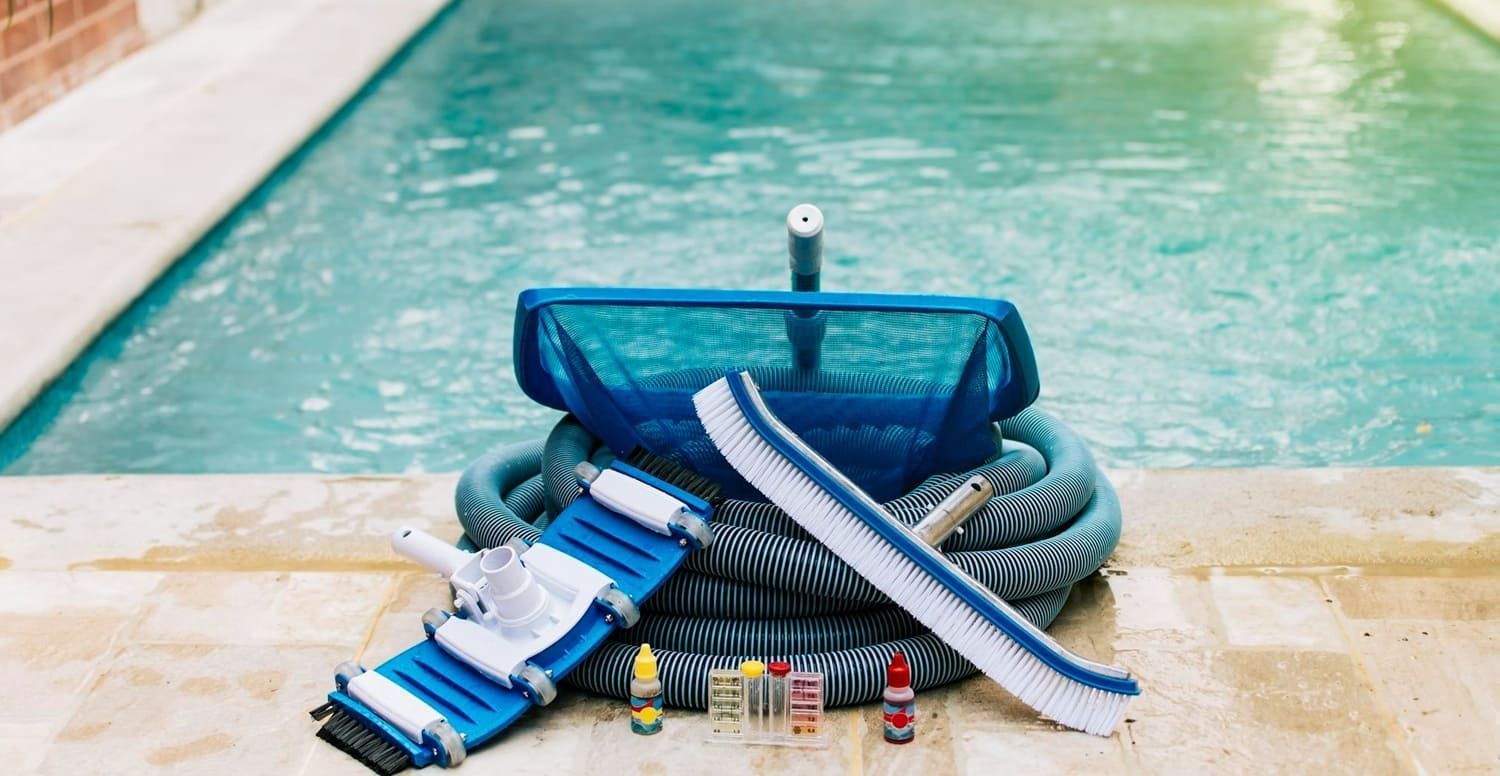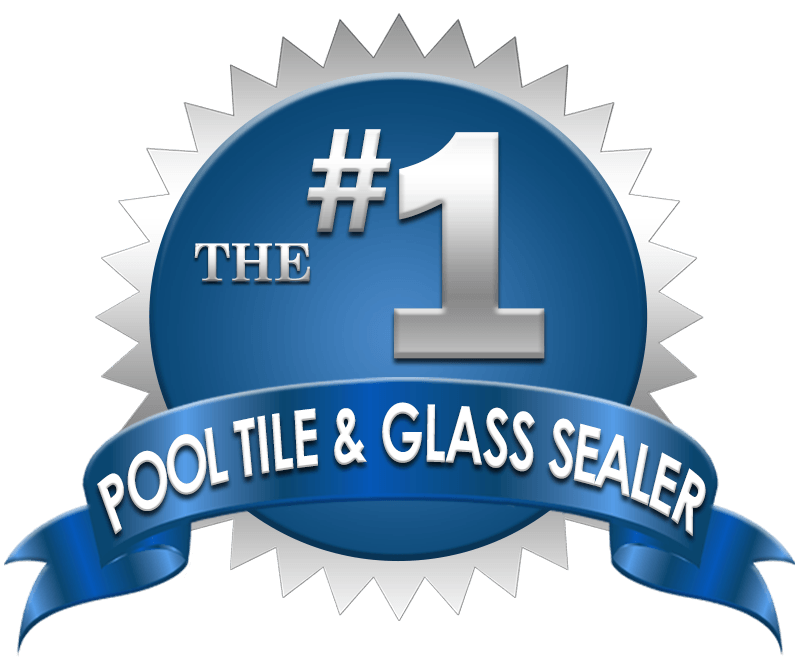The Ultimate Guide to Cleaning a Pool
If you're new to pool ownership, this guide may help you. Keep reading to learn tips for cleaning a pool to keep it sparkling, healthy, and bright.
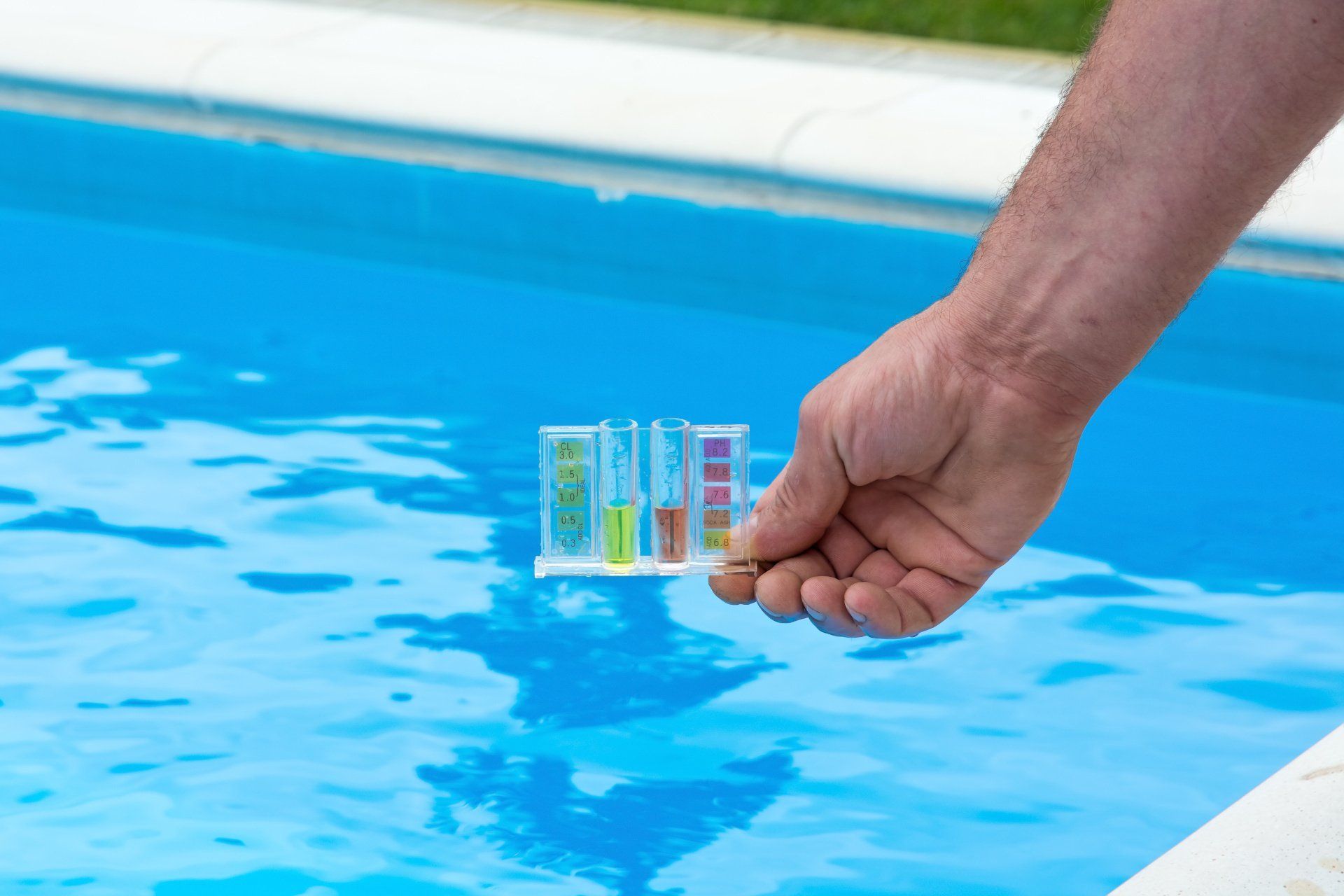
Having a pool seems like it'd be a fun and relaxing time. Until it's not.
Clogged drains, dirty water, and ongoing maintenance can seem daunting for a new pool owner. After all, there's a lot more to it than just adding chlorine every week.
Maintaining your pool properly is a big part of getting the most out of it. Thankfully, we've compiled an easy-to-read guide that explains everything from what will happen if you don't maintain your pool, to the importance of keeping your filter clean and the right way to vacuum the pool floor.
Take advantage of these helpful tips and tricks to care for your pool and ensure that your next summer will be a splashtastic one!
What Are the Different Types of Swimming Pools?
Swimming pools can be classified into three categories: chlorine pools, saltwater pools, and natural pools.
Chlorine pools are the most common type of swimming pool in the United States. These are clear and clean and have a chemical smell.
The water is treated with chlorine to kill bacteria, algae, and other microorganisms that may pose a health risk to swimmers. Chlorine is also used to disinfect the pool’s surfaces by killing harmful microorganisms like fungi, viruses, and bacteria.
Saltwater pools use salt instead of chlorine to keep the water clean. The salt is dissolved in water so it doesn't leave a chemical smell on your skin or hair when you get out of the pool. Salt also does not dry out your skin like chlorine does because it's not as harsh on your skin's natural oils as chlorine can be.
Natural pools are made from materials found in nature such as sand or gravel, rocks, plants, and trees around the edge of the pool. The edge is often built with rocks or stones to prevent the water from spilling out.
Natural pools are typically filled with spring or well water and heated during colder months. Some natural pools use biofiltration to keep their water clean. They may also have a pool pump, heaters, and/or solar heating systems.
Pool Cleaning 101
Pool maintenance is important for all pools, but there are some differences in how you maintain different kinds of pools. A clean swimming pool not only looks good but also ensures that you have a healthy and safe environment for your family.
Chlorine pools need to be sanitized with chlorine every week, whereas saltwater pools only need to be sanitized once a month. Natural pools do not require any chemicals at all, but they do have higher maintenance costs.
If you have a chlorine or saltwater pool, then the type of cleaner that you use will depend on the size of your pool. For natural pools, there are no specific cleaners that work best because they don’t contain any chemicals at all.
Regular pool cleaning and chemical maintenance ensure that you won't run into larger problems down the road, such as clogged filter lines, pool algae buildup, or other issues.
Chlorine Pool Maintenance
Some people may think that chlorine pools are easier to maintain than other kinds of pools because they don't need to be cleaned as often. This may be true for a while, but eventually, the chlorine will wear off and bacteria will start growing in the water which can lead to unpleasant smells and health risks.
The first thing you should do when starting the process of cleaning your swimming pool is to test the water. You need to know what kind of chemicals are in the water before you can figure out what else needs to be done. pH strips and test kits are common ways of checking your chlorine levels and PPM.
You should aim for a neutral pH between 7 and 7.5. Your chlorine concentration should be kept between 1 and 4 parts per million (PPM).
Saltwater Pool Maintenance
Saltwater pools still technically use chlorine. If you think back to chemistry class, chlorine is one of the main ingredients in salt.
Instead of using chemical chlorine, saltwater pools use what is called a salt cell. This cell generates chlorine when water is pulled through it.
Similar to a chlorine pool, you want to aim for a neutral pH and the same PPM measurement. You also need to keep a check on your salinity levels: between 2400 and 4000 PPM is ideal.
Cleaning a Pool: Naturally!
Natural pools use biological and ecological methods to maintain water quality. This means that you generally don't add any chemicals to the water.
However, that does not mean that you neglect water quality. Monitor regularly for algae and pH, and don't be afraid to do some other chemical tests occasionally as well.
Maintaining Your Filter
Pool maintenance is a crucial task that must be done on a regular basis to keep the pool clean and safe. The filter is the most important part of your pool filter system.
The purpose of a pool filter is to collect dirt and debris that settles on the bottom of the swimming pool. As water passes over the filter, it is cleansed of these contaminants before it returns to the swimming area.
However, if the filter gets dirty, it will not be able to do its job properly.
It's important that you regularly clean your pool filter so that it can continue to work efficiently and keep your swimming area clean and safe for you and your family.
Be sure to check your filter on a daily basis. If it has any dust or debris, scrub it off and replace it in the filter box. If your filter is showing signs of wear and tear or not functioning properly, you may want to consider replacing it.
Tips For Cleaning Pool Tiles
Tile cleaning is not an easy task. And it can be made even more difficult if there are algae or chlorine deposits on the tiles.
One of the most important things to remember when cleaning swimming pool tiles is that they must be cleaned on a regular basis. While this may seem like a no-brainer, many people tend to forget about this and only do it when they notice that the pool tiles have become quite dirty.
Waiting to clean your tiles can sometimes mean it's too late. Dirt and algae can stain your tiles and damage the shiny surface of the porcelain.
The best time to clean swimming pool tiles is after rainfall because water will have washed away any dirt and debris from the surface of the tile. Be sure to clean your tiles before you cover your pool for the winter, as well.
Here are some tips on how to clean your pool tiles:
- Mix up your calcium releaser, TR3, and Cal Block products
- Spray it onto the tiles
- Scrub the dirt and chemical deposits off using a scrub brush or sponge
- Rinse with water
- Repeat for each cleaning product
Cleaning Around Your Pool
Cleaning around a pool area is not an easy task. The area around the pool can get dirty quickly. There are many different things that you need to take care of, including cleaning the concrete and power washing stubborn stains or algae buildups.
Keeping your pool clean is important for a number of reasons. Slick mud and scum buildup can be a slipping hazard. Sharp glass, rocks, and twigs are no fun to step on when going for a cannonball. And dirt and debris can also find their way into your pool and clog your filter or vacuum.
Clean the Bottom of Your Swimming Pool
Despite your best efforts, sometimes dirt and debris will still get into your pool. And it usually sinks straight to the bottom.
Cleaning the bottom of a swimming pool is not a pleasant task. It's dirty and it takes a lot of time. But it doesn't have to be this way. There are many tools that can help you with this task.
A skimmer tool is the most common tool used for cleaning the bottom of the pool. It's like a net that you use to collect all the large debris on the floor of your pool.
A pool vacuum sucks up all the debris from your pool floor. Some vacuums will move across the bottom of the pool automatically, while others might take a little more babysitting.
Pool vacuums are arguably one of the best investments you can make in cleaning a pool. You can set them on a timer for a weekly or even daily cleaning, and let the vacuum handle most of the work
Another pool cleaning tool you should invest in is a scrubbing brush. There are special brushes that are designed to reach difficult underwater areas of your pool such as the corners and stairs.
Cleaning a Pool the Right Way
A swimming pool is a great investment for your home and family. It will provide decades of entertainment and exercise, as well as create a backyard oasis.
Keeping your pool clean and maintained is important for both the pool's longevity and the health and safety of your family. Luckily, we
LayorCare Pool & Patio offer some fantastic professional-grade cleaning supplies that make cleaning a pool a breeze.
If you're looking for the best pool cleaning and maintenance supplies on the market, we've got you covered. Check out our extensive catalog online, or
contact us at (480) 237-9363 for any pool cleaning questions you might have!
Recent Posts
